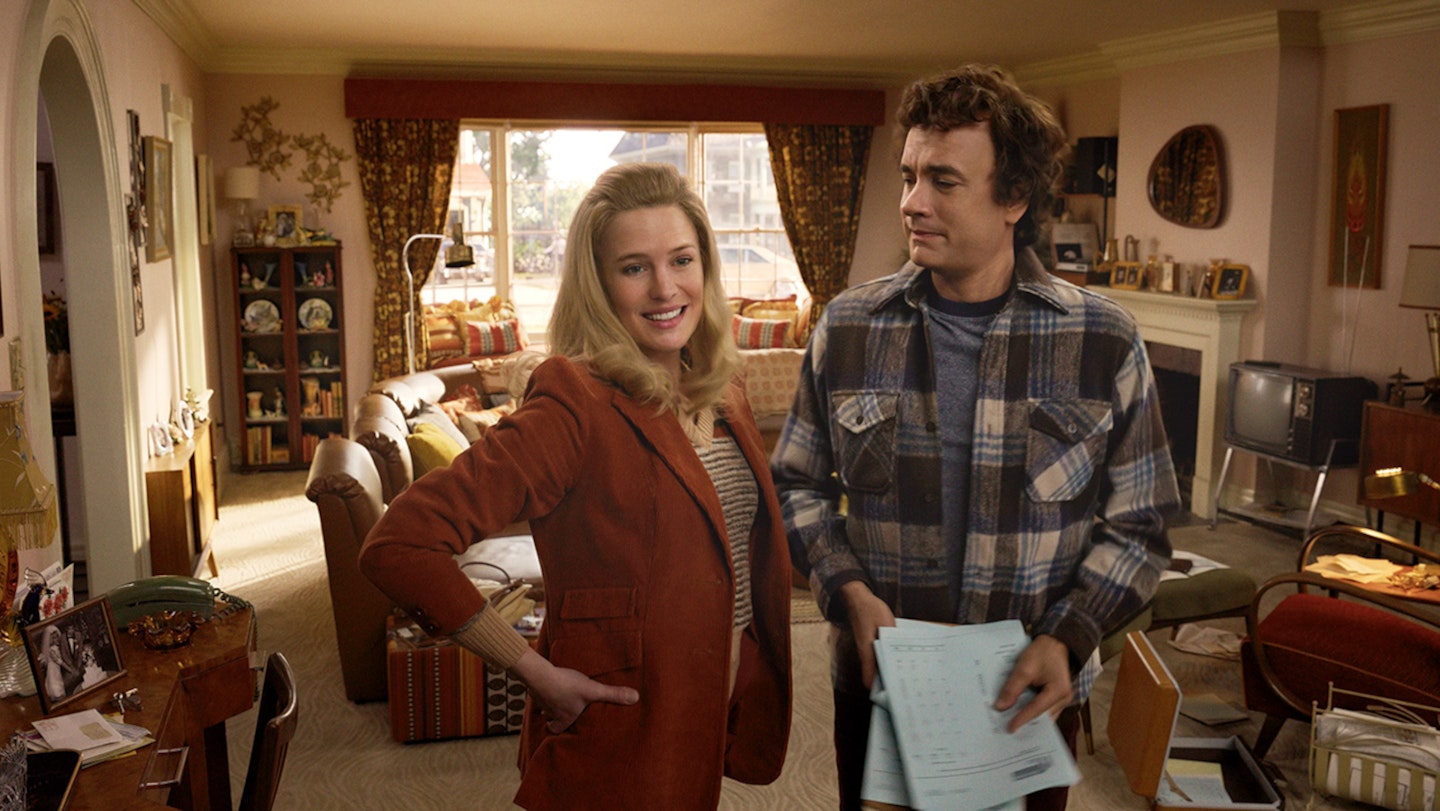In one house, generations of people experience joy, tragedy and hope, spanning hundreds of years of American history.
From the extraordinary artistry of Who Framed Roger Rabbit to the dead-eyed children of The Polar Express, there is perhaps no greater champion for paradigm-shifting visual effects than Robert Zemeckis. With Here, Zemeckis pushes the envelope again, telling the non-linear story of different generations inhabiting the same house over hundreds of years, all from the same static view of its living room. But although the unconvincing de-ageing of Tom Hanks and Robin Wright back to their Forrest Gump days has grabbed headlines, it’s the least of the film’s problems.

Here certainly begins boldly, with a herd of dinosaurs thundering past the camera through bubbling, primordial mud, only to be obliterated by that pesky asteroid. Focusing on that same patch of land, Zemeckis then rattles through a few million years, leaping forward to its inhabitance by Native Americans, a quick cameo by Benjamin Franklin, and the construction of a small town. The house itself is built around 1900, and the main narrative thrust is the family saga of baby boomer Richard (Hanks) and his wife Margaret (Wright) facing the hollow promise of the American Dream.
The dialogue is so thuddingly obvious as to prompt unintentional laughter.
The film is conceptually based on a 2014 graphic novel by Richard McGuire. Zemeckis utilises the same visual conceit of stationary images from multiple timelines laid over each other, creating a collage-like effect. On the page it’s striking, but in its translation to screen it acquires an ugly, weightless CGI sheen. The cast are forced to stand in the same spot close to the camera to deliver their most dramatic lines, as if downstage in a play.
As uncinematic as this feels, the primary issue is the script; the dialogue is so thuddingly obvious as to prompt unintentional laughter. Michelle Dockery as the house’s 1900-era occupant gets lumbered with the worst of the expository clunkers, like, “You mortgaged our home to buy that ridiculous airplane!” Zemeckis also has his characters constantly yammering at each other, unable to let impactful moments breathe.
Beneath the plasticky lacquer and typical Zemeckian sentimentality is a harsh truth about suburban suffocation and the emotional damage we inherit from and inflict upon our families. But it’s hard to move beyond the shock of the uncannily plumped-up faces of young Hanks and Wright, and they’re both more at home in the later scenes once the ageing couple starts confronting their mutual lack of fulfilment. Both are able to give some much-needed poignancy to the final act, especially a quietly yearning Wright, even as Here remains trapped in its own stilted melodrama.
Another deeply flawed, tech-forward endeavour for Zemeckis in which glimmers of human emotion only occasionally break through. Like Cloud Atlas for baby boomers experiencing late-middle-age malaise.









